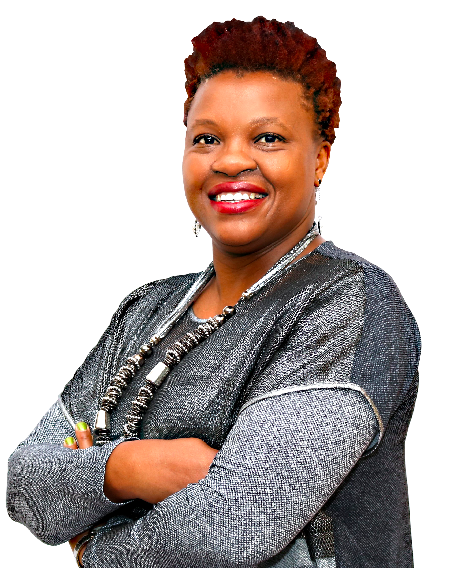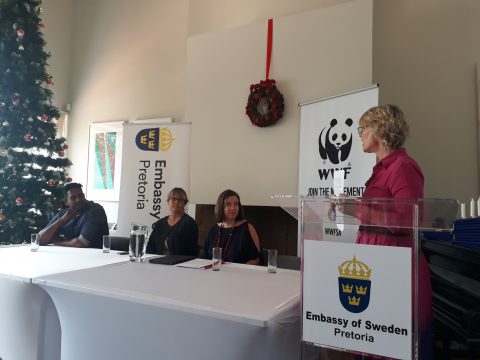Financial Mail Women
Journey To The Boardroom
Speak up
Sabine Dall’Omo, CEO of Siemens Southern and East Africa, has been at the helm of the technology company’s African operations for six years, though her career at Siemens spans more than 20 years.
How did she do it? By making herself heard, she says. “Women tend to make things happen in business rather than talk about it – even though we’re seen as the communicative gender. But men talk about their accomplishments all the time, and it’s important in business. If you don’t say what you’ve done and done well, how will people know? Make your successes clear.”
It’s especially important now, while the world is in the throes of a crisis, she adds. “Change is slow when it comes to gender equality and even though South Africa is doing well in this regard, these issues take a back seat when there are urgent priorities such as the worldwide pandemic. I believe now, more than ever, women need to build each other up and help each other rise to the top. It’s up to us.”
This big-picture outlook is second nature for Dall’Omo, who is proudest not of her own accomplishments in business, but of the fact that she’s done it all in an ethical way. “During the unprecedented and uncertain economic times ahead, this is more important than ever before. Businesses need to focus on the big picture now, because your own obligations and income are much too narrow a perspective.
“The business world in its entirety needs to be creative in finding ways to help communities and change the situation we find ourselves in, while keeping employees and job retention in mind. It heartens me to see how business leaders and other entities have taken up this call and have come together to find solutions. We should always, but now more than ever, go beyond figures and look for solutions to make a difference. Don’t just complain; do something.”
Question everything
 “As a leader, you need to trust your own judgement, and that of your council. But as a board member, you learn to question everything,” says Babalwa Ngonyama, founding chairmwoman of the African Women Chartered Accountants organisation. “This is not to say that you shouldn’t trust people, but that you should look at everything in business from each possible angle and consider all possibilities when making decisions. “Keeping an open mind is not only ethical, but also a sound way to conduct business.”
“As a leader, you need to trust your own judgement, and that of your council. But as a board member, you learn to question everything,” says Babalwa Ngonyama, founding chairmwoman of the African Women Chartered Accountants organisation. “This is not to say that you shouldn’t trust people, but that you should look at everything in business from each possible angle and consider all possibilities when making decisions. “Keeping an open mind is not only ethical, but also a sound way to conduct business.”
Ngonyama says she learned early on that competent male friends may mentor you and give great advice, but an understanding woman’s voice is irreplaceable. “It surpasses boundaries of race and age, too – women are simply more comfortable around other women.”
That is why Ngonyama believes women have a monumental task not only in climbing the ladder themselves, but in lifting other women up with them as they go too. “It’s cold up there alone. Take other women with you because we need each other.”
At just 45, Ngonyama has enjoyed an almost meteoric rise. Before becoming CEO of equity sales and trading firm Sinayo Securities, she was CFO of international investment company Safika Holdings and group chief internal auditor at Nedbank. She also serves on the boards of Aspen Pharmacare, Implats and Hollard.
Her time on these and other boards has given her valuable insights into running her own company, she says. For her, the journey is never over though – even once you reach the top. She says she’s extremely competitive – with herself.
“I have an independent mind and take care not to compare myself to others. If you do that, you’re working towards someone else’s dream. “Know yourself and have a clear picture of what you want to achieve in life, then never stop improving yourself.”
Take the shot
Zyda Rylands, Woolworths South Africa CEO, has often been praised for her amazing talent for understanding customers’ needs and providing them with exactly what they want.
This knack is partly due to the fact that Rylands has been at the company for over 20 years, working in finance, HR and operations, before leading the food business from 2010 to 2015, where, under her leadership, it saw an 83 per cent growth in turnover and a 240 per cent growth in profit.
Being CEO in uncertain economic times, such as the COVID-19 crisis, has brought new challenges though, she says. “Recently, we’ve seen that even the most stable economic environments are vulnerable to unknowns. As business leaders, our responsibility is to provide guidance and certainty for our employees in such times, and to have a deep understanding of the markets we operate in and the customers we serve, so as to provide solutions that are relevant and helpful.”
This proclivity to understand and support others means gender diversity is of utmost importance to her. “Much work still needs to be done to improve gender diversity in senior leadership across all sectors and across many levels – not just in top leadership.
“Our job, as leaders, across all industries, is to continue carving the path for capable individuals to be empowered and realise their potential. I think business needs to recognise that diversity is a competitive advantage rather than a statutory requirement. More importantly though, I would encourage women to believe in themselves and follow their dreams, whatever they may be. I would urge women to not limit their aspirations. We see the world through a different lens.”
Her own “life laws” have helped her reach that top spot, she says, and she advises other women to live by the same. “Dare to dream, work hard, believe in yourself, be open to feedback, never stop listening and learning and finally, when you are presented with the right opportunity, take the shot.”
The grass ceiling
Late in March, UN Under-Secretary-General and UN Women executive director, Phumzile Mlambo-Ngcuka, issued a statement saying that the COVID-19 pandemic exposed “the deficiencies of public and private arrangements that currently function only if women play multiple and underpaid roles”.
“Globally, women make up 70 per cent of frontline workers in the health and social sector, like nurses, midwives, cleaners and laundry workers. We need mitigation strategies that specifically target both the health and economic impacts of the COVID-19 outbreak on women and that support and build women’s resilience.
“This is a moment for governments to recognise both the enormity of the contribution women make and the precarity of so many. This includes a focus on sectors where women are overrepresented and underpaid, such as daily wage earners, small business owners, those working in cleaning, caring, cashiering and catering sectors and in the informal economy.”






 Sign-up and receive the Business Media MAGS newsletter OR SA Mining newsletter straight to your inbox.
Sign-up and receive the Business Media MAGS newsletter OR SA Mining newsletter straight to your inbox.